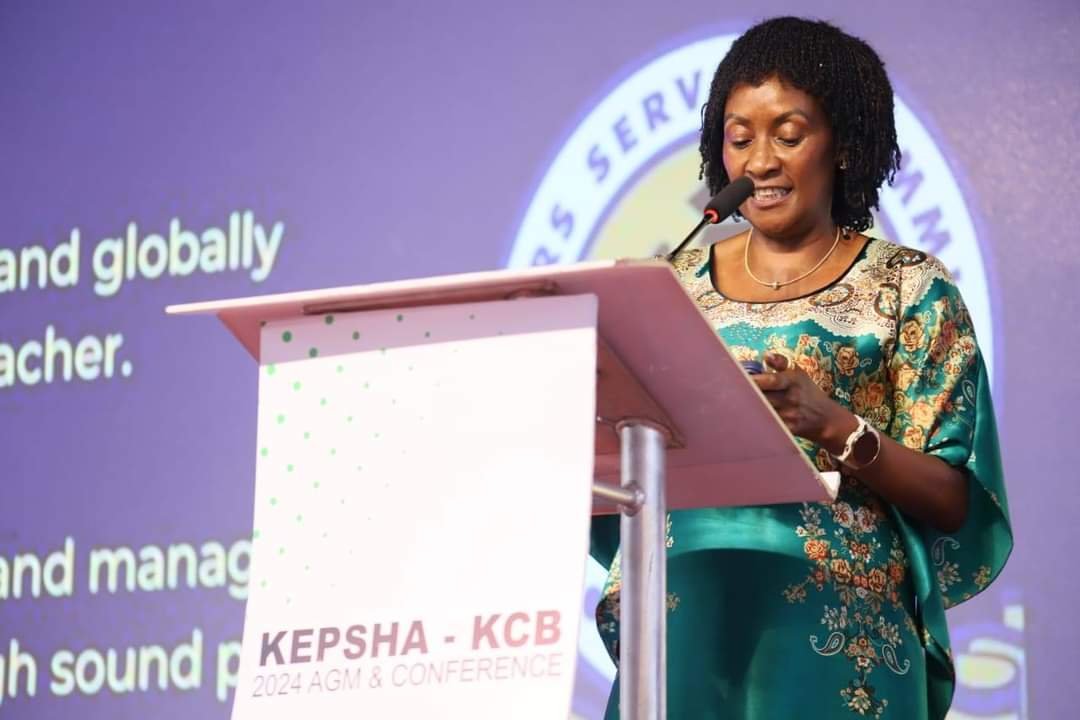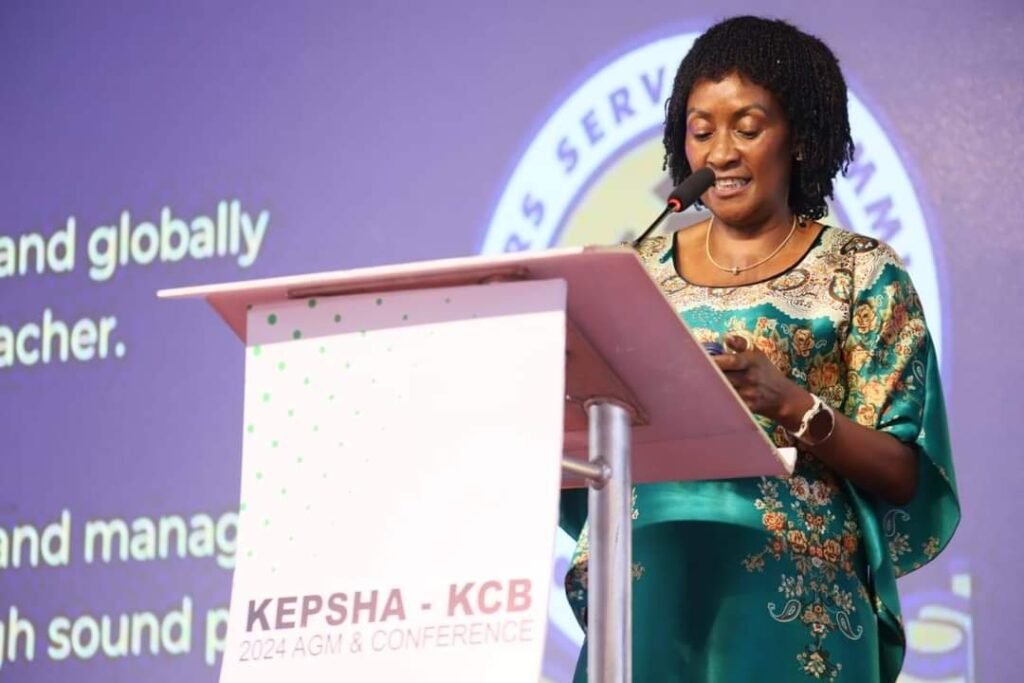Key Updates on JSS Teachers and Career Prospects for Kenyan Educators

CEO of TSC at KEPSHA

Introduction
The education sector in Kenya has been undergoing several significant transformations in recent times, particularly concerning Junior Secondary School (JSS) teachers and Primary Level 1 (P1) educators. Understanding these changes is essential for teachers to navigate their careers effectively in the evolving landscape. The Teachers Service Commission (TSC) has introduced new policies aimed at improving the standards of education, which have profound implications for the professional development and career prospects of educators.
Recent legislative actions by the Kenyan Parliament have brought about essential updates that directly impact the roles and responsibilities of JSS and P1 teachers. These developments are pivotal, given the shift towards a competency-based curriculum that emphasizes skill acquisition over rote learning. Consequently, teachers must remain informed and adaptable, as educational policies can influence classroom practices and instructional approaches.
The importance of studying these updates cannot be overstated. They encompass not only the implementation of new curricular frameworks but also alterations in recruitment practices, ongoing training requirements, and the overall professional treatment of educators within the system. By comprehending these dynamics, teachers can better prepare for the challenges and opportunities that lie ahead in their careers.
Moreover, being aware of TSC policies and parliamentary decisions is vital for educators seeking to advance their careers. Engaging with these developments can empower teachers to advocate for their rights, pursue professional growth, and contribute to improving the educational environment in Kenya. As we delve deeper into these updates, it is crucial to consider how they shape the landscape for JSS teachers and their professional trajectories.
Major Development: Confirmation of JSS Interns as Permanent Staff
Recent developments regarding Junior Secondary School (JSS) interns in Kenya have sparked significant interest among educators and stakeholders alike. Kiharu Member of Parliament, Ndindi Nyoro, has made a formal announcement confirming that JSS interns will be integrated into the permanent staff structure of the education sector. This announcement is pivotal for enhancing the job security of these teachers, who have played a crucial role in the educational system since the JSS was introduced.
In line with this directive, the government has allocated specific funds in the 2024/2025 financial year to facilitate the transition of 46,000 JSS interns into permanent positions. This allocation marks a major milestone in the ongoing efforts to stabilize the employment status of educators in this category. The Teachers Service Commission (TSC) is expected to commence the confirmation process for these interns, with a clear timeline outlined to ensure transparency and efficiency in the transition. The successful completion of this process will not only provide job security for the interns but also contribute positively to staff retention within the education sector.
The issue of job security is especially critical in light of the three-week strike that took place earlier, underscoring the urgent need for adequate remuneration and stable employment conditions for teachers. The agreements reached during the strike have set a foundation for enhancing the working conditions of educators, and the confirmation of JSS interns as permanent staff aligns well with achieving these goals. As stakeholders await further details from the TSC, the successful transition of JSS interns is anticipated to bolster morale among educators and ensure a more secure future for many in the teaching profession.
Challenges and Progress for P1 Teachers
The educational landscape in Kenya has experienced significant changes, particularly with the introduction of the new Diploma in Teacher Education (DTE). This transformation has raised various concerns surrounding the career progression of P1 teachers, who hold a pivotal role in the nation’s education system. As these educators navigate through the transition, it becomes essential to analyze both the challenges they face and the potential progress that can be achieved through this restructuring.
One of the primary challenges for P1 teachers stems from the implementation of the DTE, which merges previous diploma programs. This consolidation may create a perception among stakeholders that P1 qualifications are becoming less relevant or competitive. As a result, P1 teachers may find fewer opportunities for upward mobility within the education sector, leading to frustration and disillusionment. Additionally, the ongoing professional development requirements can feel burdensome, particularly for those who have already dedicated significant time and effort to their existing qualifications.
However, it is important to recognize the potential benefits that come with the new DTE framework. This program is designed to equip teachers with the comprehensive skills and knowledge necessary for today’s dynamic educational environment. By integrating new pedagogical methods and digital competencies into the curriculum, the DTE offers avenues for career advancement that may not have been previously accessible to P1 teachers. For instance, the expanded scope of training may open doors for leadership roles within schools, educational consultancy opportunities, or even further academic pursuits in higher education.
Understanding the implications of the DTE is crucial for both current and aspiring P1 teachers. By navigating these changes strategically, educators can leverage the new diploma to build more successful and fulfilling careers in the teaching profession. Overall, while the transition may present challenges, it also signifies a commitment to enhancing the quality of education through professional development and progressive career pathways.
Retooling Allowances for JSS Teachers
The Kenyan government has recently announced the introduction of special retooling allowances aimed at supporting Junior Secondary School (JSS) teachers, particularly in arid and semi-arid regions. This initiative reflects the country’s commitment to improving the quality of education and ensuring that teachers are well-equipped to deliver the curriculum effectively. The allowances are set at Ksh 15,000 for teachers working in arid/semi-arid areas, which recognizes the unique challenges faced by educators in these regions. For teachers from other counties, the allowance is Ksh 3,800, reflecting the varying needs across different environments.
The purpose of these allowances is to enhance the professional skills of JSS teachers, empowering them to adapt to the curriculum’s requirements satisfactorily. By investing in teacher development, the government aims to foster a more conducive learning environment that ultimately benefits students. This retooling process is particularly vital as it is intended to facilitate teachers in acquiring new methodologies and practices that will aid in effective curriculum delivery.
Scheduled from December 2nd to 5th, 2024, the disbursement of these allowances will provide timely support to educators as they prepare for the upcoming academic year. This initiative not only showcases the government’s recognition of the role that teachers play in the academic landscape but also highlights a strategic approach to building a robust education system. As educators receive these allowances, it is expected that there will be a positive impact on teaching standards, leading to improved learning outcomes for students across the country.
Implications for Educators
The recent developments regarding JSS (Junior Secondary School) teachers in Kenya have profound implications for educators at both short-term and long-term levels. In the immediate term, the transition of JSS teachers from provisional to permanent positions has resulted in enhanced job security. This newfound stability allows educators to focus on their professional duties without the anxiety of potential job loss, fostering a conducive environment for teaching and learning. In addition, the government’s provision of retooling allowances serves as a financial cushion, enabling teachers to upgrade skills and adapt to the new curriculum demands, which is essential in maintaining teaching efficacy.
Moreover, these developments are likely to influence the overall educational landscape significantly. The emphasis on ensuring that JSS teachers receive adequate support may encourage higher standards in teacher training programs, leading to a more qualified workforce in the long run. As educators gain confidence and capacity through financial support and permanent status, it is anticipated that their teaching methods will improve. This would contribute directly to better student outcomes, enhancing the quality of education delivered within Kenyan schools.
Looking beyond the immediate changes, these developments may serve as a catalyst for broader education reforms in Kenya. Should the transition of JSS teachers prove successful, it could lead to a ripple effect that encourages systemic changes in the educational sector. This might include increased focus on various professional development opportunities for all educators, integration of modern pedagogical strategies, and a renewed commitment to improving teaching standards across the board. Ultimately, the engagement of JSS teachers in professional growth could lay the groundwork for a robust educational framework, benefiting not only educators but also students and the national education agenda as a whole.
Conclusion
In the current landscape of education in Kenya, significant updates regarding Junior Secondary School (JSS) teachers have emerged, shaping the trajectory of teaching careers within the nation. The changes outlined in this blog post highlight the vital role that these educators play in the academic framework, emphasizing the need for continuous professional development and adaptation to new teaching methodologies. The adjustments in qualification requirements and the introduction of specialized training programs are all steps toward enhancing the quality of education delivered at this crucial juncture in students’ academic journeys.
Moreover, the impact of these developments extends beyond individual career prospects for JSS teachers; they contribute to the overall educational system’s efficacy and responsiveness toward global educational standards. As teachers gain access to better resources and training, the direct beneficiaries will be the students, ultimately leading to improved learning outcomes. The recognition of JSS educators not only enhances their professional standing but also encourages a more committed and capable workforce dedicated to nurturing the next generation.
As the educational policies evolve, it is vital for teachers to remain proactive and informed. Participation in discussions surrounding education reforms can empower educators to advocate for their rights and interests effectively. Engaging in dialogue within professional networks and educational forums can provide insights into best practices and emerging trends impacting the teaching profession. By fostering a collaborative environment, JSS educators can share their experiences and strategies, thus enriching the entire teaching community.
In conclusion, the recent updates regarding JSS teachers are a testament to the evolving nature of education in Kenya. Educators are encouraged to stay engaged and informed to navigate these changes effectively and to advocate for their professional aspirations while contributing actively to the advancement of the educational landscape.
Call to Engagement
We invite our readers to actively engage with this topic by sharing their thoughts and experiences regarding the recent developments affecting teachers in Kenya. The changes in the education sector, particularly those impacting Junior Secondary School (JSS) teachers, have sparked numerous discussions among educators, parents, and policymakers. Your insights are invaluable, and your perspectives could enrich our understanding of the current landscape of teaching and learning in the country.
As professionals in the education sector, it is crucial to understand how recent educational policies and reforms have influenced your career prospects and teaching methods. We encourage you to comment below and discuss how these changes have affected your day-to-day experiences in the classroom. Have you encountered any challenges or improvements due to the new policy implementations? Are there particular aspects of the changes that resonate with your personal journey as an educator?
Moreover, if you have questions about the implications of these updates for your professional growth or for the students you teach, please do not hesitate to voice them. Engaging in an open dialogue can facilitate the exchange of ideas and strategies that may prove beneficial in navigating the evolving educational environment. By sharing your feedback and insights, you not only contribute to this discussion but also assist your peers in gaining a broader understanding of the challenges and opportunities within the teaching profession.
We believe that a collaborative approach will foster a sense of community among educators, ultimately leading to improved educational outcomes for our students. Your voice matters, and we look forward to hearing your contributions to this significant conversation surrounding the future of education in Kenya.







